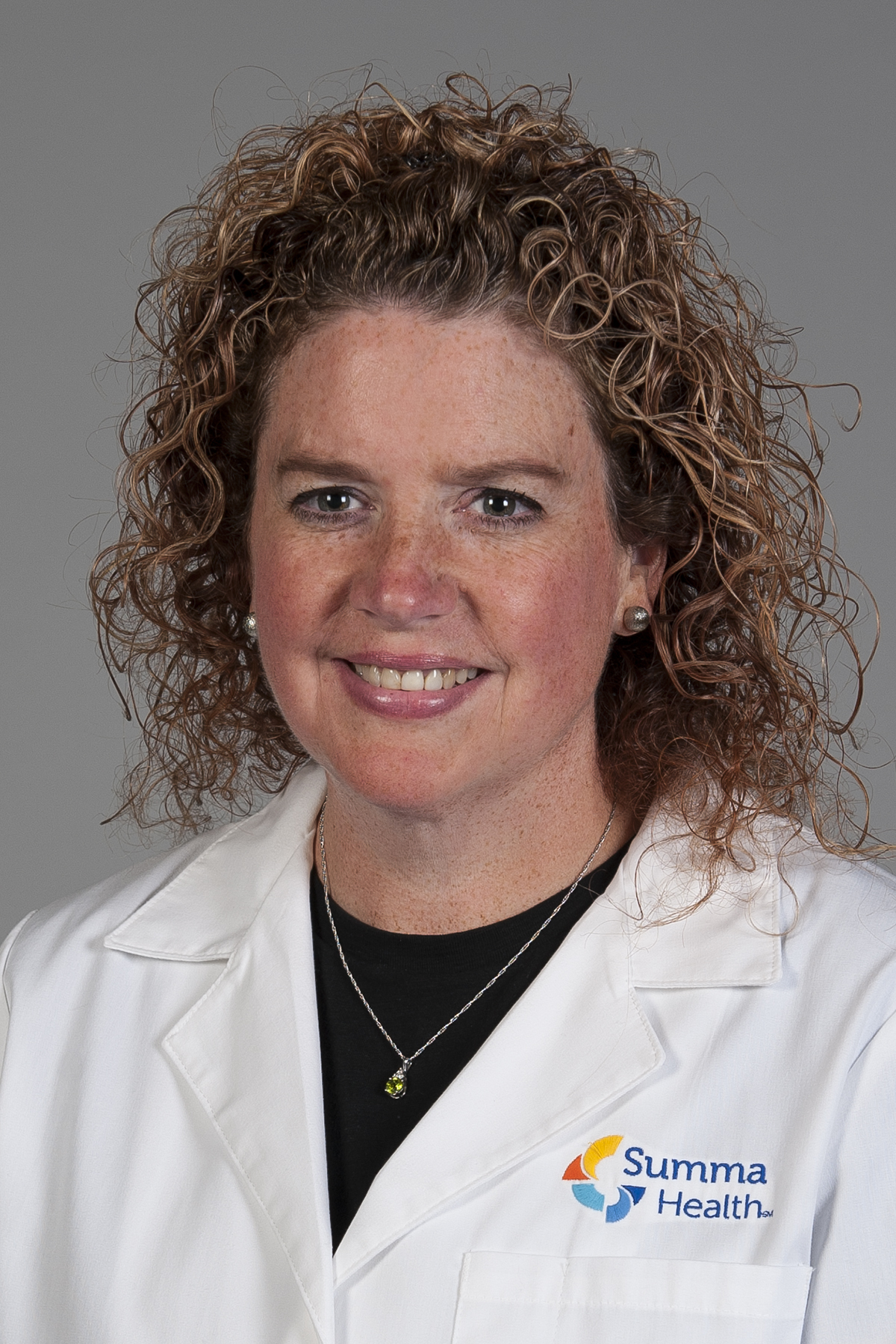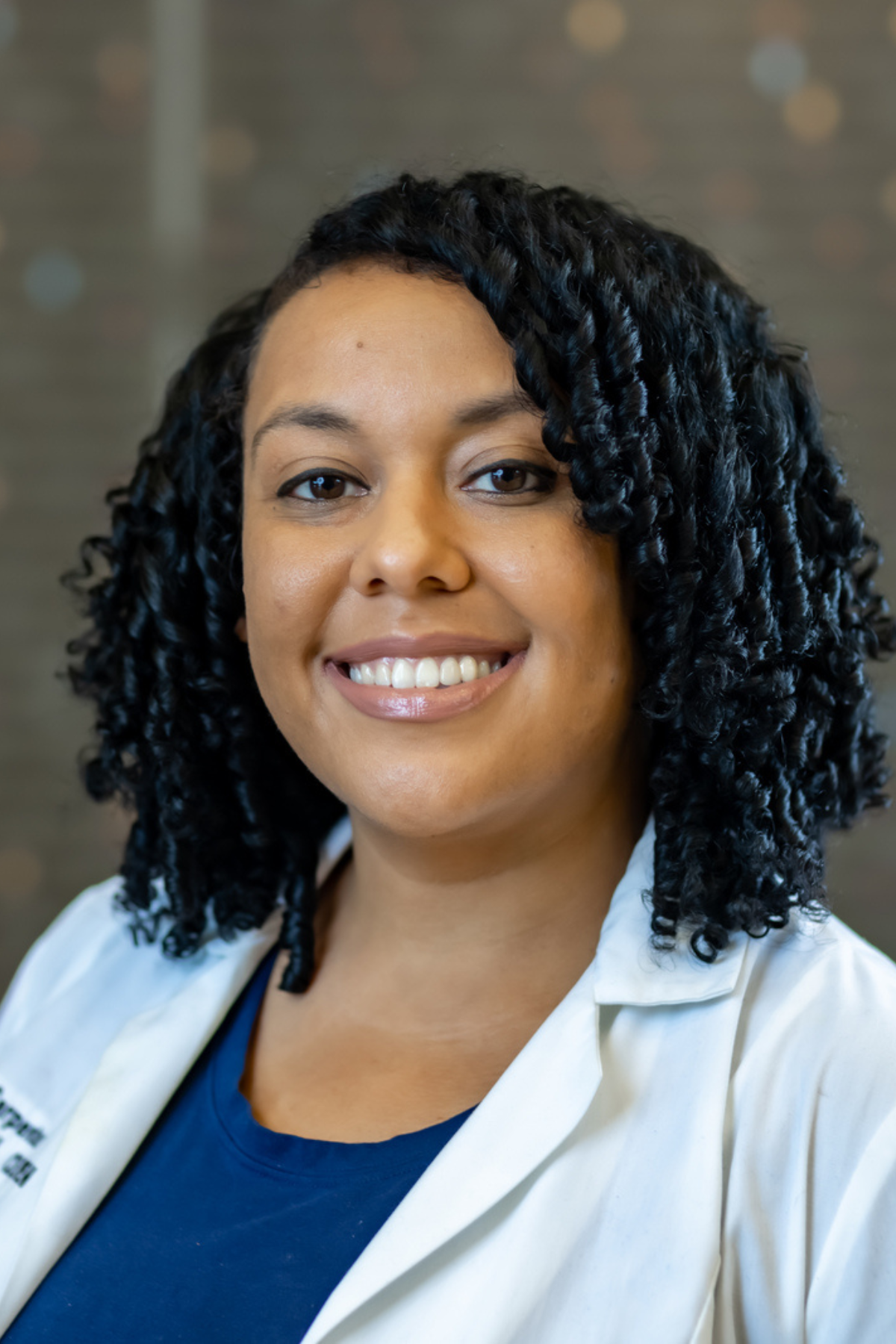Fall Prevention for Seniors [Podcast]
Posted February 07, 2024 by Rathna Shenoy, MD, FACS | Amy Hirnikl, BSN, RN, CCRN-K | Alexandra Carpenter, MHA, BSN, RN, TCRN, CPEN

Listen to this episode of Healthy Vitals Podcast.
Join Dr. Rathna Shenoy, Amy Hirnikl, Education and Injury Prevention Coordinator, and Alexandra Carpenter, Trauma Program Manager, to discuss fall prevention for seniors.
Featured Guests:
Rathna Shenoy, MD, FACS
Dr. Rathna Shenoy is a double board certified Trauma/ Acute Care Surgeon at Summa Health, a Level I Trauma Center. She completed her general surgery residency at Summa Health, followed by her Surgical Critical Care and Acute Care Surgery fellowship at Atrium Health in Charlotte, NC. Dr. Shenoy has been an attending surgeon at Summa Health since 2019. She currently serves as the Vice Chair of Surgery, Chief of the Division of Trauma/Surgical Critical Care/Acute Care Surgery, and the Associate Program Director of the General Surgery Residency. On a national level, Dr. Shenoy has been a member of the Eastern Association for the Surgery of Trauma (EAST) Career Development Committee.
Amy Hirnikl, BSN, RN, CCRN-K
Amy is the Education and Injury Prevention Coordinator for the Trauma Program at Summa Health – Akron Campus. Amy has 25 years nursing experience, 24 of those years spent in the Trauma/Surgical Intensive Care Unit; working both as a bedside RN and Case Manager. Amy is a Certified Critical Care Registered Nurse (CCRN-K), accredited through the American Board of Specialty Nursing Certifications. Amy coordinates numerous evidenced based fall prevention classes, including Stepping On and Matter of Balance.
Alexandra Carpenter, MHA, BSN, RN, TCRN, CPEN
Alexandra is the Trauma Program Manager at Summa Health- Akron Campus; an ACS verified Level I Trauma Center since 2021. Alexandra’s clinical nursing experience encompasses pediatric and adult trauma, emergency and critical care for over 16 years. Alexandra is a Certified Pediatric Emergency Nurse (CPEN), and a Trauma Certified Registered Nurse (TCRN) through the Board of Certification for Emergency Nursing. Alexandra is the immediate Past President for the Ohio Society of Trauma Nurse Leaders. Alexandra is an Advanced Trauma Life Support (ATLS) course coordinator and is also the current ENA Ohio State Trauma Committee Chair, Faculty and Course Director for the Trauma Nursing Core Course (TNCC) and the Emergency Nursing Pediatric Course (ENPC).
Transcription:
Scott Webb (Host): Though elderly people are more susceptible to falls, falls are not a normal part of aging. In other words, there are things we can do for ourselves and our loved ones to help prevent falls and learn how to fall properly so that injuries aren't catastrophic. And joining me today to discuss falls prevention are Dr. Rathna Shenoy, she's the Vice Chair of Surgery and Chief of Trauma. I'm also joined by Alexandra Carpenter, she's the Trauma Program Manager. And Amy Hurnickel is here, she's the Education and Injury Prevention Coordinator.
This is Healthy Vitals, a podcast from Summa Health. I'm Scott Webb. So, I want to thank you all for joining me today. This is an important topic. My mom is in her 70s and she has fallen and she hurt herself. And so for me, I'm an interested party as I'm sure listeners are as well. So Dr. Shenoy, I'll start with you. Maybe you can share your experience in treating elderly patients who are at risk of falling and let listeners know what sparked your interest in this particular area.
Treatment for elderly fall risks
Dr. Rathna Shenoy: Absolutely. So as a background, our level one trauma center is the oldest level one trauma center in the Akron area. And we have been caring for patients that come in due to injuries from falls for all 25 years. We are seeing more and more patients coming in with a higher incidence of falls as the Baby Boomer Generation is getting older.
So, you know, our trauma program has a very robust injury prevention team. We provide fall prevention workshops, including evidence-based programs called Stepping On, which we will explain later on what that means. Also, for any patients that are admitted to our trauma service, we have an in-house geriatrics team that follows them while they're inpatient and also during discharge. They'll help manage medications, et cetera. Also, as falls are our number one mechanism for injury, you know, there is a financial impact of falls within our healthcare system, which is exponentially increasing. And as you alluded to, one fall can change the quality of life of a patient as well as their independence moving forward.
Host: Yeah. That's exactly what happened to my mom. It took her forever to recover, and I'm not sure that she's even fully recovered at this point. And it was pretty scary as I'm sure it is for anybody who falls, and their loved ones and families. Let's talk about then the assessment and risk identification. How do you typically assess the risk of falls in elderly patients? What factors do you consider when you're identifying them and so on?
Assessing the risk of falls in elderly patients
Dr. Rathna Shenoy: All geriatric patients who come into our emergency departments are screened for risks of falls while they are in the hospital. We have physical therapy assessments that are performed to determine what level of care or needs the patient would have moving forward in preparation for discharge.
In identifying patients who are at higher risk for falls, one of the big things that we look at is what their gait characteristics are. Do they have a shuffling gait, et cetera, or any use of assistive devices such as canes or walkers, if they have visual or auditory impairments? Which types of medications they use, because medications can absolutely contribute to the risk of falls? What their home environment is, whether they have steps to get up into their home or steps to get up to their bedroom, whether they have incontinence or increased frequency or urgency requiring them to get up in the middle of the night, and also what their history of falls are.
Host: And Amy, this really sounds like a multidisciplinary approach, right? So just wondering, when we think about the collaboration of healthcare professionals here, whether it's physical therapists, occupational therapists, you know, how do you involve everyone? How are they involved? And maybe you can talk about the importance of that multidisciplinary approach.
Advancing fall prevention
Amy Hirnikl: It definitely is a very important aspect of an evidence-based fall prevention class. The one that Dr. Shenoy mentioned earlier is called Stepping On, and that program does incorporate guest experts. So, it's a seven-week program and we have a guest expert, five of the seven weeks. So, it includes a physical therapist or occupational therapist, a pharmacist, a community mobility and safety expert, and a vision expert. and what they do is the physical therapist and occupational therapist come in and show the participants exact exercises, both for balance and strength. They work with them on how to navigate steps correctly, how to navigate out in the community correctly, like in inclement weather like we have now. Our pharmacist, you know, talks about taking your medications appropriately. Another program I also am involved in is called Matter of Balance, which is also an evidence-based fall prevention course. And I'm a master trainer for that, which means I can teach other people how to run that course as well.
Host: Yeah. And how about interventions and preventative measures, right? So, we think about how do we sort of prevent these things? What do you commonly recommend to reduce the risk of falls for elderly patients? And how do you approach medication reviews and adjustments? You mentioned medications there, and I'm sure that's a big part of this.
How do you prevent falls in elderly patients?
Amy Hirnikl: Correct. Regular exercise is a big part of the program just to get people out and moving and, you know, not lead a sedentary life where they are able to get out in the community and things. Home hazard assessment, we talk about that and how to improve things in your home to make it safer. And then, medication compliance is a big factor. And we do rely on our Geriatric colleagues and our primary care physicians who regularly see these patients to carefully review their medications. We encourage them to have conversations about blood thinners and the need to continue these. While the blood thinner itself does not impact their fall risk, but it does increase their risk of life-threatening injury from the fall.
Host: Yeah. And as we mentioned, that multidisciplinary approach, you can really see how the whole team sort of gets activated and involved with these patients. Let's talk about patient education, Alex. How do you educate elderly patients and their families? What are some of the key messages you try to convey to promote awareness and proactive measures?
Proactive fall prevention education
Alexandra Carpenter: So, first off, when we are educating our patients on falls, the biggest thing in order to be proactive is to encourage our patients in our community and our older adults within our community to be aware that falls are not a normal part of aging, that there are things that they can do to prevent falls to learn about how to fall safely and learn about different techniques that they can use in their home and even with structuring of their homes and their room set up to be able to prevent falls. And I think that's really important to get to our community members and our older adults, because a lot of times people think that, "Oh, this is just a part of what happens when you get older, you fall." And a lot of times, it's the fear of falling that incapacitates an individual to where their quality of life is impacted, because they don't want to go outside to the store or especially in the weather like this, when it gets bad, out of the fear of, "Well, if I fall, I know that there can be really detrimental effects. So, I'm not even going to live my life to my fullest capacity just out of the fear alone." And that's where the education that we do within our community is really helpful to improve that confidence of, "Yes, there's a chance that I could fall, but I have done things to make sure that I'm prepared as much as possible to avoid that situation from happening."
And since we are a level 1 trauma center here at our Akron campus, part of our requirements as a trauma program is to have a robust injury prevention program, which Amy is our leader in that. And with that, falls are our number one mechanism of injury, as mentioned before. So, that fall prevention is something that we really focus on and our goal is to prevent the fall from even occurring, so then in turn we're preventing that individual from coming to our hospital at all. And that's where we have those really robust programs that we've put in place with Matter of Balance, with Stepping On, and then a couple of new programs that we're also trying to incorporate to expand our bandwidth on the people that we're reaching. And that's really the key with that, is making sure that we're getting that information out into the community because all the education is happening in those courses.
We also have a one-hour course that can kind of be injected into any scenario. It can be virtual, it can be in person where Amy does do a very expansive education on the different techniques that you can use to prevent falls at a very high level. That's really that down and dirty preliminary introduction to fall prevention. And then if there's interest to go into the more in-depth classes for those seven week courses, that are on a more reoccurring basis, then our individuals can do that.
Host: Yeah. So, lots of education. And of course, Summa Health is happy to and is well-prepared to treat people if they've fallen or when they've fallen. But as you say, the goal here really is to prevent falls, is falls prevention. And let's stay there then, Amy. How do we stay updated on the latest research and development related to falls prevention?
How to stay updated on fall prevention research
Amy Hirnikl: Yeah. So, that's really an important thing for me to make sure I'm getting, you know, the appropriate information out there. So, I do attend regular state and local meetings specific to fall prevention. For example, Ohio Injury Prevention Partnership, the Ohio Department of Health, Summit County Health Department. I attend regular meetings on them. I do serve on the Injury Prevention Committee for the Trauma Center Association of America. And then with in-house, we do partner with our Family Medicine and our Geriatrics to pursue research opportunities related to the geriatric population.
Host: Yeah. And Alex mentioned there the Akron community. Let's talk about that. I know Community outreach and involving the community and being there for their respective communities is really important to Summa Health. So, I want to have you talk about the community resources. Whether there in the Akron community or in general, how do you guide your patients to find these local community resources?
How to find local community resources
Amy Hirnikl: That's a really good question. And I've learned a lot working in this role. I work closely with an agency called Area Agency on Aging. They hold different workshops, classes. They support services for patients. A lot of communities in the area have what's called a community paramedicine program. And what that entails is your local fire department where they may go out and do a fall risk assessment with a patient. And then, they'll actually even install grab bars, lock boxes, it's kind of like that little box that realtors use so that they can access a home if somebody can't get up and answer their door.
So, I always encourage people reach out to your local fire EMS agency to see if this is something that is offered in their area. I do have a resource booklet that I give out to every class and it talks about things like, you know, what pharmacy has discounts for seniors, you know, where to go if they need help with installing a grab bar. And then, I also provide a home safety checklist to participants so they can actually go through room to room and see what they can get rid of or adapt to make it safe for them.
Host: Sure. Yeah. So, talk about monitoring and follow up. I'm sure that's a big part of this. How do you monitor the progress of patients in terms of their falls prevention programs? And really, what's your approach to followup care with these elderly patients?
Monitoring the progress of elderly fall patients
Amy Hirnikl: Because these programs that I do are evidence-based, you know, we do have to have that followup and monitoring. I do a pre- and a post-survey with every participant, as well as a three month follow up. So if they attend the workshop, you know, we screen them before, after. And then, I reach out at three months to offer an additional workshop for them to see how things are going and if they have any other further questions.
My approach to followup care for elderly patients to ensure ongoing fall prevention in the community in general, is that I attend several events throughout the year where I distribute, you know, material, tips and, I have conversations with the public to educate them on fall prevention opportunities, because a lot of people misunderstand that they think, "Oh, it's normal. There's really nothing I can do about falling." Like I want to make sure I educate them and let them know what's out there for them to, you know, help keep them safe.
Host: Yeah. And I'm sure there are, Alex, some challenges and barriers, right? This all sounds great, the four of us talking about this. But what are some of the challenges and barriers in terms of fall prevention strategies and adherence to the falls prevention recommendations and so on.
Barriers to fall prevention strategies
Alexandra Carpenter: As far as the challenges go, one of the biggest things that we face currently is really just getting the attendance, getting our community members and our older adults within our communities to seek out the resources that we have available. We have a very robust program that we're continuously building on. We have the evidence-based classes that we're putting on. And the challenges that we're facing currently is just getting that attendance. So, that's where even this podcast comes into play. We want to get the word out there, so the public knows that we have these resources available. So hopefully, in turn, they seek out these courses in the future so that they can learn these fall prevention strategies, and getting, again, the public to understand that they can do something about this. This isn't something they just have to accept as a normal part of life. They can do things and take ownership over this and go to these classes and get these resources that are free and readily available. We've done a lot of things to try and encourage that attendance.
So, it's really just getting the word out there and encouraging that attendance and letting people know that, hey, they can take control of this situation and seek out those resources and come to us to learn these techniques and strategies and also implement them. It's one thing to learn and hear it, but also to go home and actually pull up that throw rug that is on the floor that may be something that they may trip over in a couple weeks and actually change some of their day-to-day practices that people get comfortable and they do things how they always have done, but there may be some things that you don't even realize could be contributing to your potential risk. And yes, I love that throw rug that you spent hundreds of dollars on, but what can we do to try and keep you safe in your home? Because that hip surgery is a lot more expensive than that throw rug. So, just having those conversations and bringing that sense of reality so that we can actually navigate that change to happen.
Host: Yeah, I see what you mean. You're absolutely right. The hip replacement surgery, much more expensive than the rug. And so, there's the learning about this stuff and hearing it, but then the actual implementation, the adherence to all of this. And I'm sure Alex, as we finish up here today and good stuff, it's not one-size-fits-all, right? So, let's talk about the personalized care, how you tailor this to individuals. And maybe you can give us an example of a case where that personalized care that you offer really made an impact.
Personalized care for elderly fall patients
Alexandra Carpenter: Sure. So, one of the things that we do do is having those conversations. And when Amy is out at different events in the community and she's advertising these classes is getting to know the individual and what their current needs are because all of these classes have different requirements. Some of the courses require for you to already be very independent and mobile within the community within your home to be able to learn certain techniques to prevent falls. There's other classes that are geared towards people that are a little bit less mobile that maybe have assistive devices that they need to use to get around, whether that's a walker or a wheelchair, or even a level of being bed-bound. So, there's different classes that we have available. And that's one of the first things that we would be doing, is talking to our older adults in our community to say, "Okay, which class is going to fit your needs the most? Because we want to make sure that you're going to get as much as you can out of that class," and then making sure if there's any visual or auditory impairments that we need to address to make sure, again, that they're getting out everything that they can with that and having those communications. And then if we need to refer someone, if they do have that community paramedicine program in their area where we can expand even more and have an actual home assessment to really personalize that care and actually go through the home and point out specific things that may be a barrier.
For us, as far as an example of what we've seen, as people have gone through the class and really experienced how much they've learned and how much it's impacted them on a day-to-day basis, we've gotten several thank you letters from different people that have participated in the course, addressing how it's really helped them to really feel more secure and having that knowledge and that power to again, take that ownership and prevent them from falling. Or even in the case that they do fall, they know how to fall a little bit more effectively, if you will, so that it can decrease severe injury. And so, that really has empowered individuals that have taken our classes and that's been really important and that's really the most valuable thing for us.
Host: Yeah, that's great. I was thinking, you know, my daughter's a basketball player, high school basketball player. And one of the things they practice is how to fall properly, right? So, they can take charges on the basketball floor and fall properly. So maybe just a thought, just spitballing here, maybe bring some high school basketball players in and work on so they can, you know, help them learn to fall without hurting themselves too badly.
This has been really great today. As I told you all before we got rolling here, I'm sort of an interested party. My folks are in their 70s. They've both fallen and learning today from you all that, you know, a lot of times it is that fear of falling that keeps people at home, keeps them from living their best lives and everything you all are doing, education, multidisciplinary approach, all the resources that are available. Everything is just really good stuff and brings a smile to my face. So, I thank you all for being here today and you all stay well.
Learn more about Summa Health's surgical trauma care
And for more information, go to summahealth.org/surgicaltrauma. And if you enjoyed this episode of Healthy Vitals, we'd love it if you'd leave us a review. Your review helps others find our educational content. I'm Scott Webb. Thanks for listening, and we'll talk again next time.
Vitality eNews Sign Up
Receive the Summa Health eNewsletter for the latest health tips, advice and updates.



